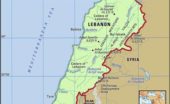Molly Minturn - My family is heartbroken to share that my father died in surgery on Monday, Feb. 10. It…
Predatory states & democratic recession
Written by Diana Thebaud Nicholson // March 24, 2008 // Africa, Americas, Asia, Europe & EU, Government & Governance, Middle East & Arab World, Russia // Comments Off on Predatory states & democratic recession
The Democratic Rollback
Larry Diamond, Senior Fellow at the Hoover Institution
Foreign Affairs, March/April 2008
Summary: After decades of historic gains, the world has slipped into a democratic recession. Predatory states are on the rise, threatening both nascent and established democracies throughout the world. But this trend can be reversed with the development of good governance and strict accountability and the help of conditional aid from the West.
Since 1974, more than 90 countries have made transitions to democracy, and by the turn of the century approximately 60 percent of the world’s independent states were democratic. The democratization of Mexico and Indonesia in the late 1990s and the more recent “color revolutions” in Georgia and Ukraine formed the crest of a tidal wave of democratic transitions. Even in the Arab world, the trend is visible: in 2005, democratic forces in Lebanon rose up to peacefully drive out Syrian troops and Iraqis voted in multiparty parliamentary elections for the first time in nearly half a century.
But celebrations of democracy’s triumph are premature. In a few short years, the democratic wave has been slowed by a powerful authoritarian undertow, and the world has slipped into a democratic recession. Democracy has recently been overthrown or gradually stifled in a number of key states, including Nigeria, Russia, Thailand, Venezuela, and, most recently, Bangladesh and the Philippines. In December 2007, electoral fraud in Kenya delivered another abrupt and violent setback. At the same time, most newcomers to the democratic club (and some long-standing members) have performed poorly. Even in many of the countries seen as success stories, such as Chile, Ghana, Poland, and South Africa, there are serious problems of governance and deep pockets of disaffection. In South Asia, where democracy once predominated, India is now surrounded by politically unstable, undemocratic states. And aspirations for democratic progress have been thwarted everywhere in the Arab world (except Morocco), whether by terrorism and political and religious violence (as in Iraq), externally manipulated societal divisions (as in Lebanon), or authoritarian regimes themselves (as in Egypt, Jordan, and some of the Persian Gulf monarchies, such as Bahrain).
Before democracy can spread further, it must take deeper root where it has already sprouted. It is a basic principle of any military or geopolitical campaign that at some point an advancing force must consolidate its gains before it conquers more territory. Emerging democracies must demonstrate that they can solve their governance problems and meet their citizens’ expectations for freedom, justice, a better life, and a fairer society. If democracies do not more effectively contain crime and corruption, generate economic growth, relieve economic inequality, and secure freedom and the rule of law, people will eventually lose faith and turn to authoritarian alternatives. Struggling democracies must be consolidated so that all levels of society become enduringly committed to democracy as the best form of government and to their country’s constitutional norms and constraints. Western policymakers can assist in this process by demanding more than superficial electoral democracy. By holding governments accountable and making foreign aid contingent on good governance, donors can help reverse the democratic recession.
BEYOND THE FAÇADE
Western policymakers and analysts have failed to acknowledge the scope of the democratic recession for several reasons. First, global assessments by the Bush administration and by respected independent organizations such as Freedom House tend to cite the overall number of democracies and aggregate trends while neglecting the size and strategic importance of the countries involved. . . . Complete article available for purchase from Foreign Affairs



